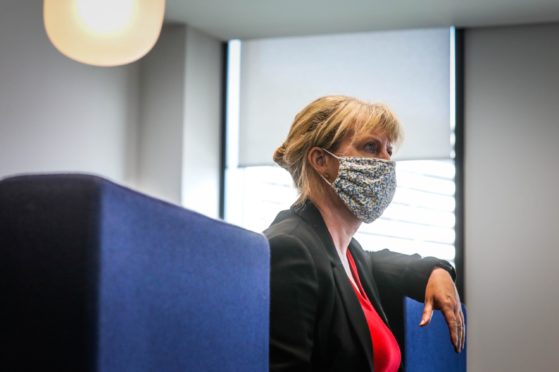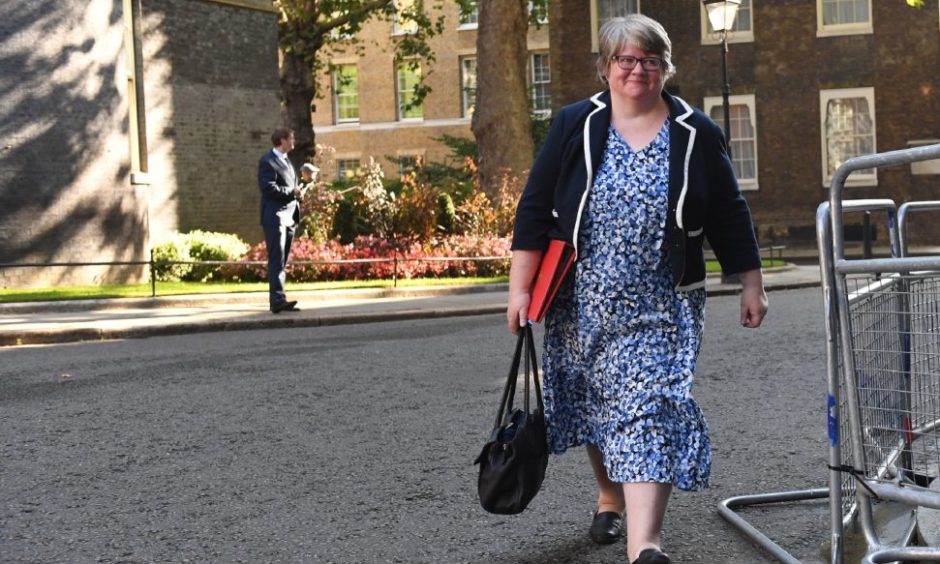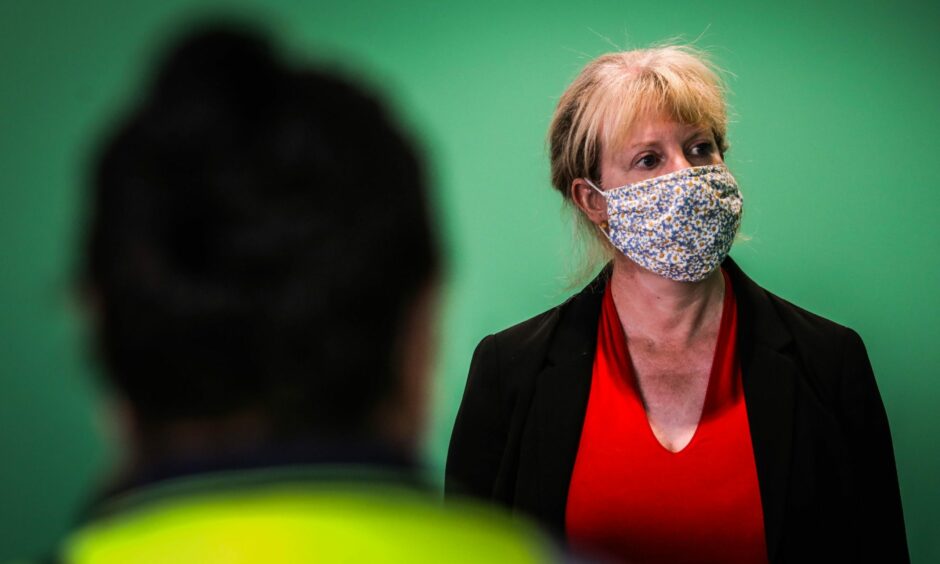Scotland’s social security secretary has called on the UK Government to reconsider plans to ditch the £20 increase in Universal Credit that could see 500,000 people plunged into poverty.
Shona Robison has written to UK work and pensions secretary Thérèse Coffey and chancellor Rishi Sunak to express “grave concerns” following confirmation the minimum income floor will be reintroduced from August and benefits will be cut by £1,040 a year from October.
The temporary increase was brought in during the coronavirus pandemic and senior politicians from across the UK’s four parliaments have urged the UK Government to reconsider plans to remove it, insisting it has become a “lifeline for millions of families, saving them from being impoverished”.
The Scottish Government has long asked the UK Government to make the uplift permanent and to extend it to legacy benefits.
Key safety net
In a letter to UK ministers, Ms Robison also called for the suspension of the minimum income floor, which was brought in during the pandemic to help self-employed people, to be extended by a further 12 months.
She said: “The economic, social and health uncertainties resulting from Covid-19 continue and it is essential that key social security safety nets, in particular Universal Credit, are at least adequate for the challenges ahead.
“The 20-per-week uplift and the suspension of the minimum income floor have provided much needed investments which should be built upon, not withdrawn to the detriment of millions of families across the UK.”
Ms Robison said anxieties felt by members of the public ahead of benefits being cut to their lowest rate since the 1990s would not be assuaged by confirmation that the impact of removing the uplift has not been modelled by the DWP.
Analysis by the Scottish Government in June found that if ministers push on with plans to withdraw the extra £20 a week, it could cut social security payments in Scotland by over £460 million per year by 2042.
The Joseph Rowntree Foundation also conducted analysis indicating that cutting Universal Credit at the end of September will pull 500,000 people across the UK, including 200,000 children, into poverty.
Ms Robison said: “From these analyses, it is impossible not to conclude that these changes will hurt those in already financially precarious positions and hinder the social and economic recovery from the pandemic.”
Boris Johnson told a session of the House of Commons Liaison Committee on July 7 that the cut to Universal Credit is necessary because “the emphasis has got to be on getting people into work”.
Ms Robison said the most recent DWP figures show that of the six million people on Universal Credit across the UK, 2.2 million are already in work and 1.6 million are not required to work due to health and caring responsibilities.
She insisted that cutting the standard allowance for households where people are already working or cannot work will not provide them with adequate support that takes into account their circumstances.
Self-employed payments ‘severely reduced or even eliminated’
Ms Robison also warned that failure to extend the suspension of the minimum income floor would see payments to self-employed people “severely reduced or even eliminated” and suggested an extension could be used to re-design the system in a way that avoids penalising those with fluctuating or seasonal incomes.
She said: “The Scottish Government is committed to tackling child poverty and to delivering a fairer, more prosperous country. As part of this we have commenced delivery of our new Scottish Child Payment.
“The removal of the £20 uplift threatens to effectively mitigate the positive impact of this new benefit. I call on you to match our efforts and work with us to tackle and eradicate child poverty.
“More generally, the Scottish Government has long called for a number of urgent improvements to known problems with Universal Credit, including removing the two-child limit, lifting the benefit cap and scrapping the five-week wait for a first payment.
“We will continue to call for these much needed changes and hope that you will listen to the breadth of calls from across the political spectrum to make those changes, and also to not knowingly make Universal Credit less adequate at a time when more people than ever are reliant upon it.”
Scottish Parliament already has ‘significant welfare powers’
A UK Government spokesman said that throughout the pandemic, it has spent £400 billion “protecting people’s jobs, livelihoods and supporting businesses and public services”.
He said: “We extended economic support as we continue on the road to recovery, right through to the end of September in order to support those who most need it. That includes unprecedented welfare support.
“More than £9bn will have been spent on the uplift by the time it ends in September. It is right that economic support is wound down as we come out of this crisis and we focus on helping people back into work.
“Meanwhile, the Scottish Parliament has significant welfare powers and can top-up existing benefits, pay discretionary payments and create entirely new benefits in areas of devolved responsibility.”



